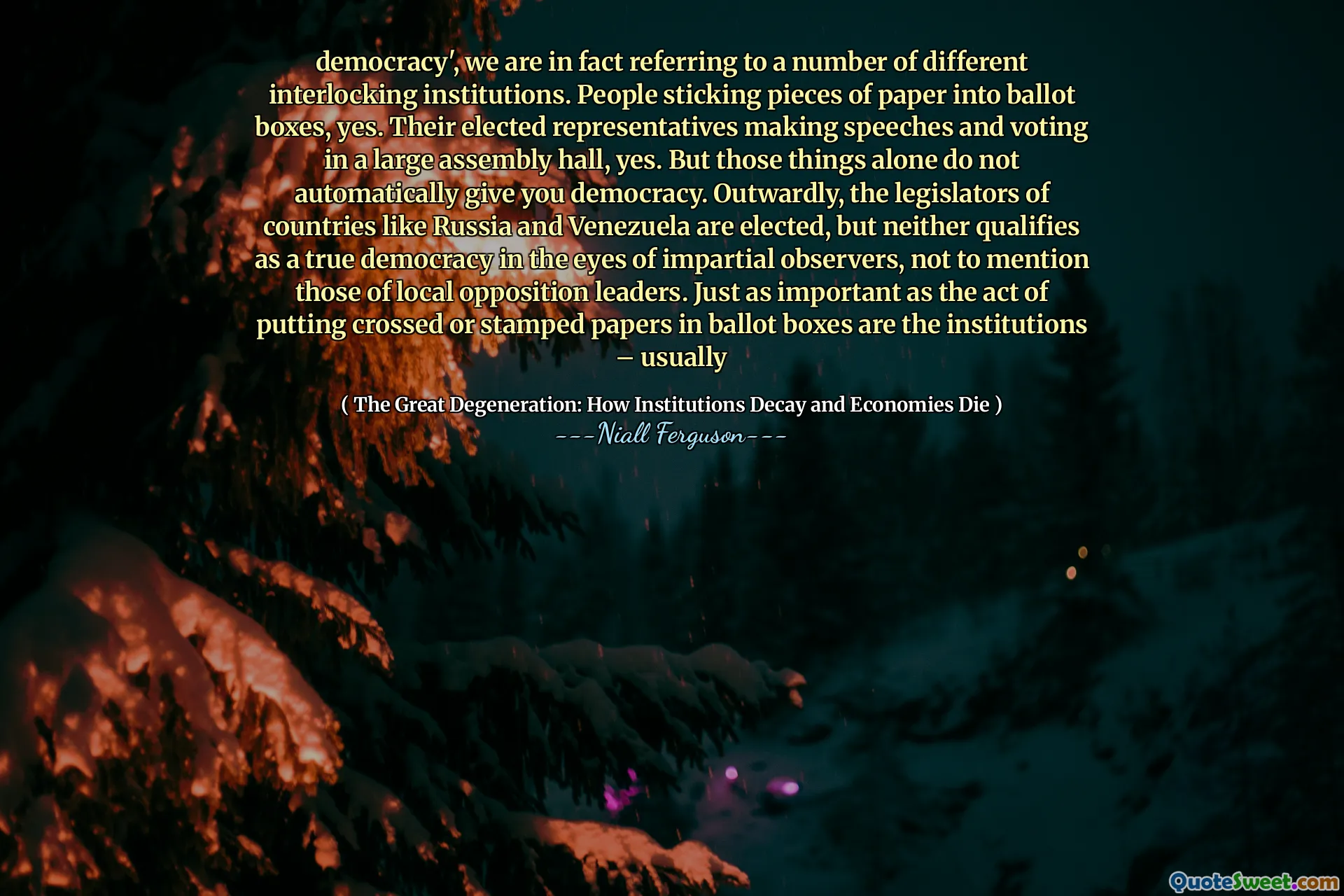
democracy', we are in fact referring to a number of different interlocking institutions. People sticking pieces of paper into ballot boxes, yes. Their elected representatives making speeches and voting in a large assembly hall, yes. But those things alone do not automatically give you democracy. Outwardly, the legislators of countries like Russia and Venezuela are elected, but neither qualifies as a true democracy in the eyes of impartial observers, not to mention those of local opposition leaders. Just as important as the act of putting crossed or stamped papers in ballot boxes are the institutions – usually
When we talk about democracy, we are referencing various interconnected institutions beyond just voting procedures. While actions like placing ballots in boxes and representatives delivering speeches are visible components of democracy, they do not alone define it. In nations such as Russia and Venezuela, where lawmakers are elected, the absence of genuine democratic principles marks them as lacking in true democratic values, according to both impartial observers and local opposition leaders.
At the core of democracy lies the essential institutional framework that supports these electoral activities. The mere presence of elections does not guarantee a functioning democracy; instead, it is the strength and integrity of the underlying institutions that determine the health of a democratic system. As highlighted in "The Great Degeneration," authored by Niall Ferguson, understanding this institutional aspect is crucial for recognizing how democracies can thrive or deteriorate over time.











